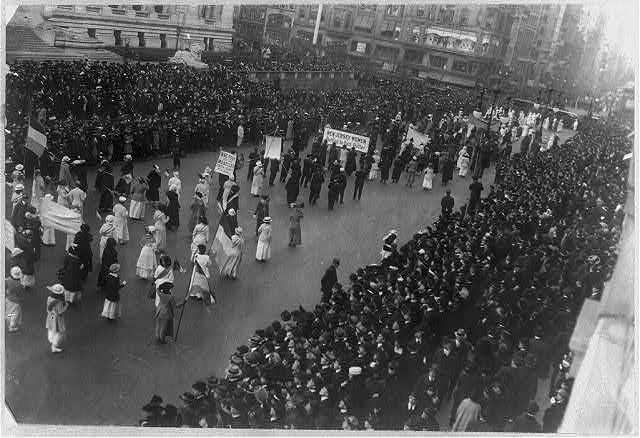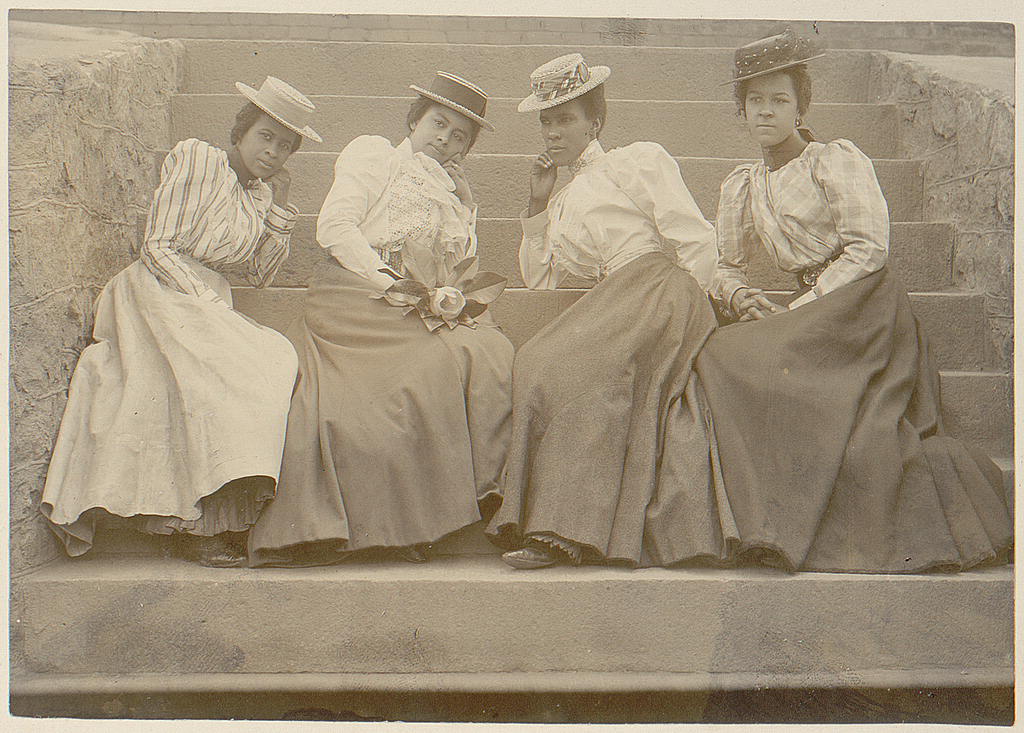This day in Mohawk Valley history: March 14
The Observer, March 14, 1913, Utica, Oneida County, New York

Suffrage parade, New York City, Oct. 23, 1915. Library of Congress.
Women Prepare Bill
Measure Gives Them Right To Vote for Members of Congress
Washington, March 14–Recent activity on the part of leaders at national suffragette headquarters was explained to-day by the announcement that the legislative committee was at work on the preparation of a bill to be presented to the incoming Congress, granting to women the right to vote for members of Congress.
It was acknowledged that little hope was entertained that such a bill would pass, but the leaders expect the “cause” to profit through the agitation they expect will follow whatever action Congress may take. Plans are being mapped, it was declared for a vigorous campaign in Michigan when the people of that State vote on the question of universal suffrage.
Source: NYS Historic Newspapers
It would take more than an additional four years from the date of this publication before women would gain the right to vote in New York State.
The state’s constitutional amendment on women’s suffrage would finally pass on November 6, 1917. This celebrated date would come nearly 70 years after a meeting where a group of women discussed a woman’s right to vote. This meeting in 1848, at the home of Jane Hunt in Waterloo, is often cited as where the pursuit of women’s rights began in New York State. Present at Jane Hunt’s home were Lucretia Mott, Martha Wright, Mary Ann McClintock and Elizabeth Cody Stanton. Less than a week later on July 19, these women along with many others, met at Wesleyan Chapel in Seneca Falls. While these women began the pursuit of the vote, none of them would see their dream realized. It would take many women and more than two generations to work tirelessly on this effort. – NYAssembly.gov

Often overlooked, Black women are known to have organized in Philadelphia at the African Methodist Episcopal (AME) Church during the spring of 1848 before the meeting at Waterloo.
“In that church, there is a fight brewing over women’s rights, specifically church women who want licenses to preach.” (Historian and author, Martha S. Jones) While the passage of the 19th Amendment on August 26, 1920, was a victory, it did not guarantee women the vote as it did not eliminate state laws on voting access. Many Black women, and men, would still be prohibited from voting because of pole taxes, literacy tests, and threats of violence.


